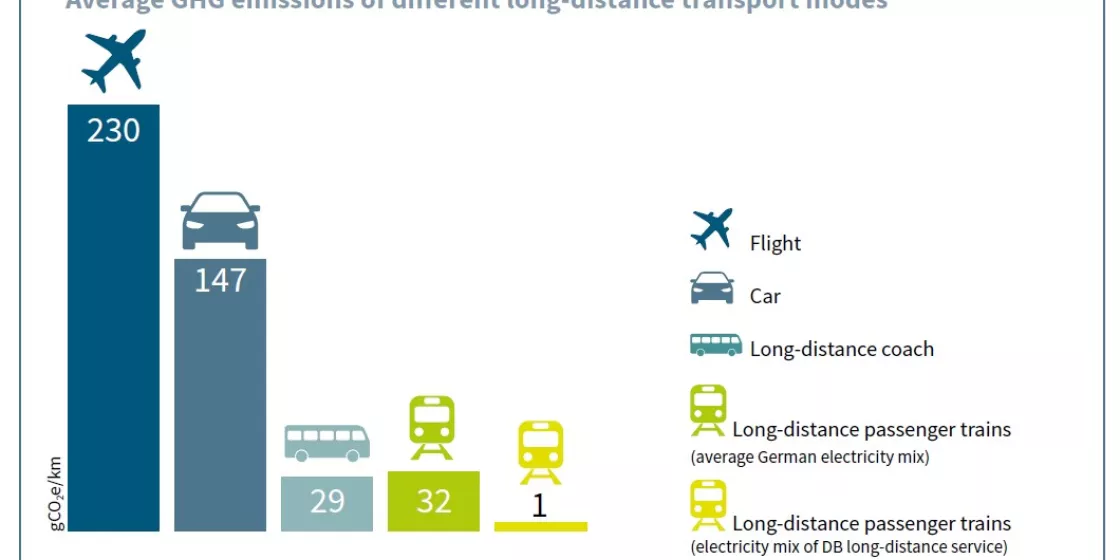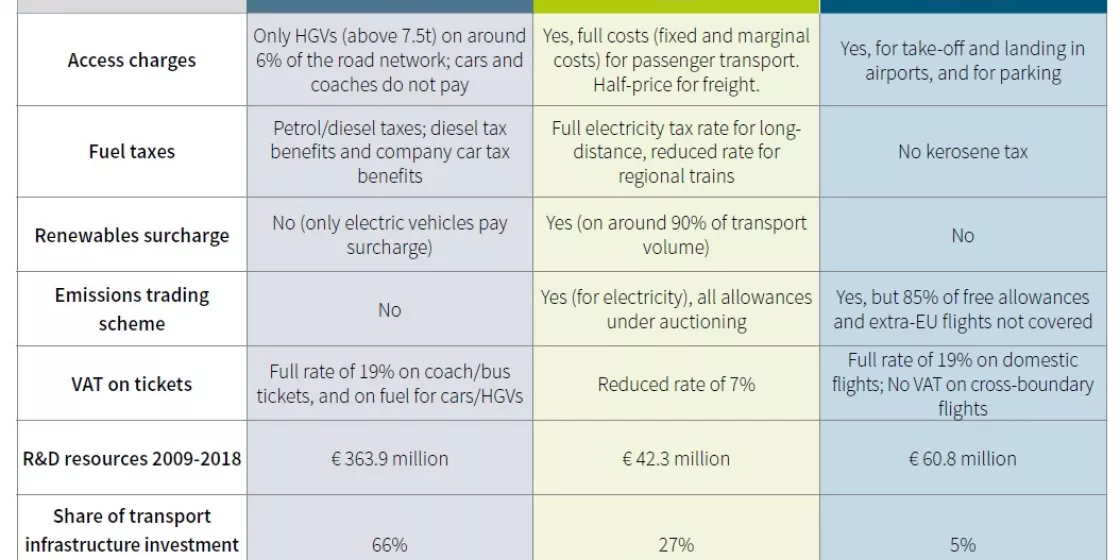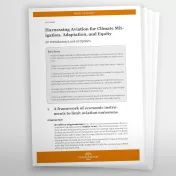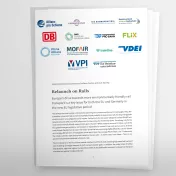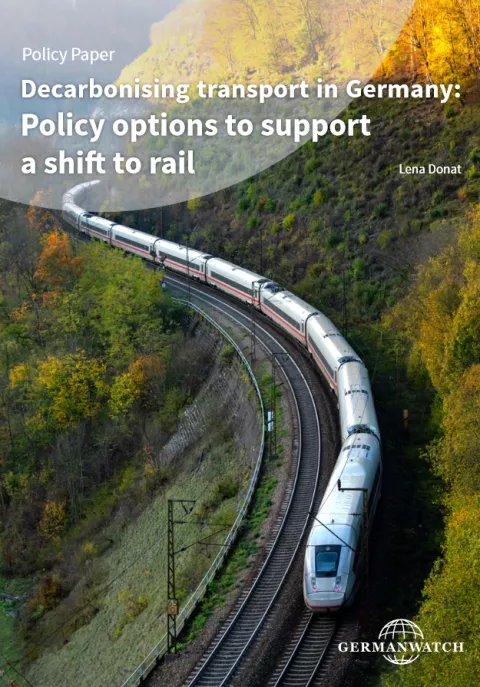
In order to become carbon-neutral before 2050, Germany urgently needs to tackle greenhouse gas emissions from the transport sector – the only sector with rising emissions.
Shifting passenger transport to rail is one key puzzle piece for decarbonising Germany’s transport system. Rail is already one of the most climate-friendly modes of transport, emitting at least seven times less CO2 than aviation, and almost five times less than cars.
So far, the government has not made any major attempts to reduce the volume of road or air transport or shift to cleaner modes. On the contrary, the rapid growth in car and air passenger numbers over the last decades would not have been possible without large sums of public infrastructure investments, tax exemptions, research and development support and other subsidies. If this support went instead to rail transport, trains could become a real alternative to car and air travel.
This policy paper provides an overview of public support for rail in comparison to support for road and air transport, and presents possible solutions for modernising the subsidy and tax system to turn rail into the backbone of future mobility.

